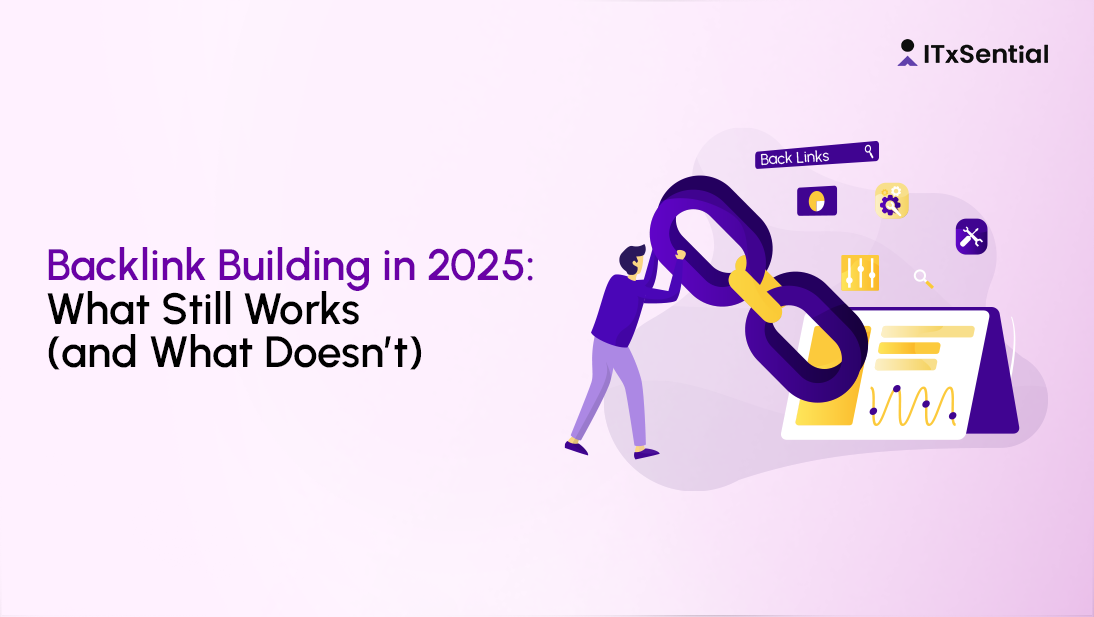TL;DR
Backlink building in 2025 is still essential, but it’s no longer about mass link swaps or shady PBNs. Focus on high-quality, context-rich, human-first links. Winning strategies include digital PR, niche edits, thought-leadership guest posts, HARO alternatives, interactive tools, and community-driven mentions. Avoid bulk directories, AI-spam guest posts, and irrelevant exchanges. A 90-day structured plan plus simple outreach can build authority fast.
The 2025 Backlink Landscape
Google’s March 2025 Link Spam Update killed most shortcuts. AI-generated content is everywhere, so trust signals and authority links matter more than ever.
- Relevance > Quantity
- Editorial context > Footer/sidebar junk
- EEAT (Experience, Expertise, Authoritativeness, Trustworthiness) is now baked into ranking algorithms
Backlink building strategies for 2025 need to respect these changes—earning links naturally through value-driven assets and relationships.
What Still Works: 6 Proven Backlink Building Strategies 2025

1. Digital PR & Data Stories
- Steps:
- Research industry data (surveys, polls, and tools like Statista).
- Create a story with a visual (charts, infographics).
- Pitch to journalists via platforms like Featured, Qwoted, or LinkedIn.
- KPI: 10–15 referring domains from tier-1 outlets per campaign.
2. Niche Edits (Contextual Backlinks)
- Steps:
- Find relevant articles ranking in the top 20 for your keywords.
- Reach out to site owners, offering to update with fresh stats and your link.
- KPI: 20% success rate, DA 40+ sites.
3. Thought-Leadership Guest Posts
- Steps:
- Build author profiles (LinkedIn, X, Medium).
- Pitch editors with unique angles, not generic “10 SEO Tips.”
- Include 1–2 contextual links.
- KPI: 2 guest posts per month, avg. traffic 5k+ per site.
4. HARO Alternatives & Expert Roundups
- Steps:
- Sign up for Featured.com or SourceBottle.
- Respond with short, expert insights.
- Host your own roundup with niche experts.
- KPI: 5–10 new backlinks monthly.
5. Interactive Tools & Calculators
- Steps:
- Build a small calculator (ROI, savings, quiz).
- Offer as an embed.
- Promote in forums/communities.
- KPI: 20–30 organic links in 6 months.
6. Community-Driven Mentions
- Steps:
- Be active on Reddit, Quora, and Indie Hackers.
- Share value and link naturally when relevant.
- Partner with micro-influencers for blog mentions.
- KPI: Consistent referral traffic > links alone.
Key takeaway: All six rely on human-first value, not automation.
What Doesn’t Work Anymore
- Buying bulk backlinks from Fiverr
- Private Blog Networks (PBNs)
- Spammy Web 2.0 profiles
- Automated AI guest posts with spun content
- Link wheels and reciprocal linking schemes
Key takeaway: If it looks like manipulation, Google kills it.
A 90-Day Backlink Plan
Month 1: Foundation
- Audit current backlinks (Ahrefs, SEMrush).
- Identify 30 guest post targets.
- Create one linkable asset (eBook, tool, or guide).
Month 2: Outreach
- Send 50 guest post pitches.
- Pitch 20 journalists.
- Publish the asset and share it with niche communities.
Month 3: Scale
- Follow up on unresponsive contacts.
- Launch a small PR campaign.
- Track KPIs: DA growth, referral traffic, and rankings.
3 Outreach Email Templates
1. Guest Post Pitch
Subject: Fresh article idea for [Site Name]
Hi [Name],
I loved your recent piece on [topic]. I’d love to contribute an in-depth article on [unique angle]. It will be 100% original and tailored for your readers. Can I send you an outline?
Best,
[Your Name]
2. Niche Edit Request
Subject: Quick update for your article on [topic]
Hi [Name],
Your article [topic] is super helpful. One stat is outdated (from 2019). I have fresh data + a resource here [your link]. Would you like me to send the updated reference?
Cheers,
[Your Name]
3. Roundup Contribution
Subject: Happy to share insights for your roundup
Hi [Name],
I saw your call for expert contributions on [topic]. Here’s my short take:[2–3 sentence insight]. Feel free to link back to [your site] if you use it.
Thanks,
[Your Name]
FAQs
Q1. Is backlink building still relevant in 2025?
Yes. Backlinks remain a top 3 ranking factor when quality and relevance drive them.
Q2. How many backlinks do I need to rank?
It depends on competition. For low-difficulty keywords, 20–30 quality links may suffice; competitive niches need 100+.
Q3. Are AI-generated backlinks safe?
No. AI-spam guest posts and auto-directory submissions trigger penalties.
Q4. Should I disavow toxic links?
Only if they look manipulative (spam anchors, adult/gambling sources). Otherwise, Google often ignores them.
Q5. What’s the fastest safe way?
HARO/featured and guest posting—results in weeks, not years.
20-Item Printable Backlink Checklist
- Run backlink audit
- Disavow spam links if needed
- Define 3 linkable assets
- Build a journalist list
- Sign up for HARO/Featured
- Create 30 guest post targets
- Draft 5 guest post outlines
- Prepare niche edit outreach list
- Build an ROI calculator/tool
- Join 3 niche communities
- Post 10 value-driven comments
- Launch data survey
- Create one infographic
- Pitch 20 journalists
- Send 50 guest post emails
- Follow up after 7 days
- Track 5 main keywords
- Check referral traffic weekly
- Measure DA growth monthly
- Review progress every 90 days
Conclusion & CTA
Backlink building strategies for 2025 are about quality, context, and authority. If you create assets worth linking to and build genuine relationships, links will follow

